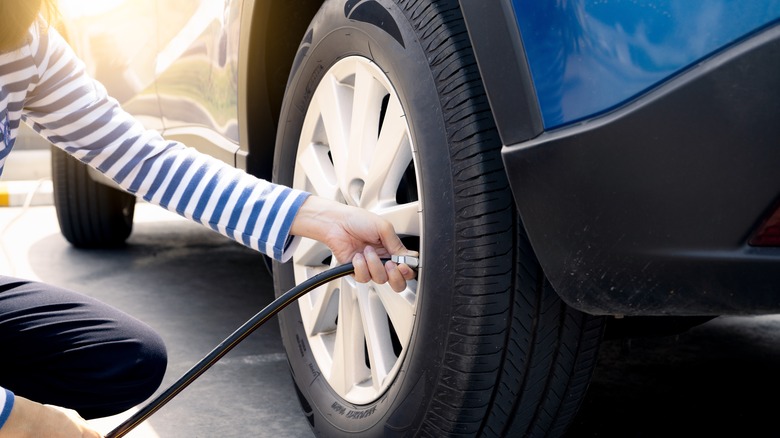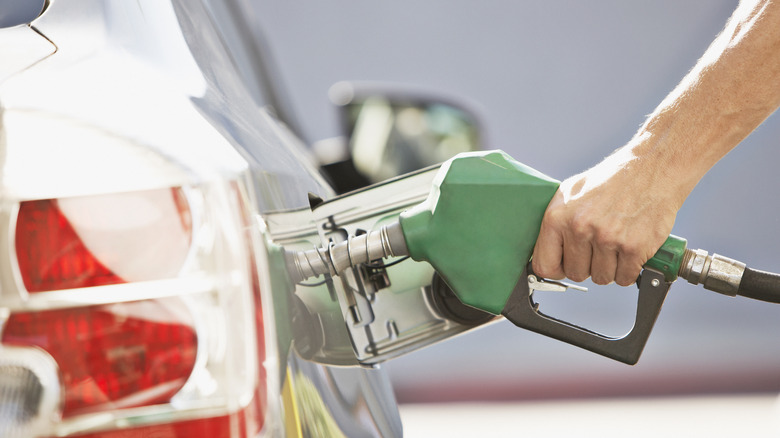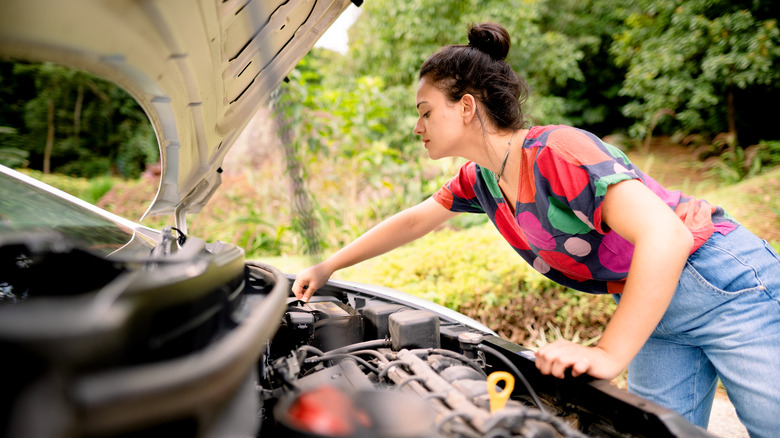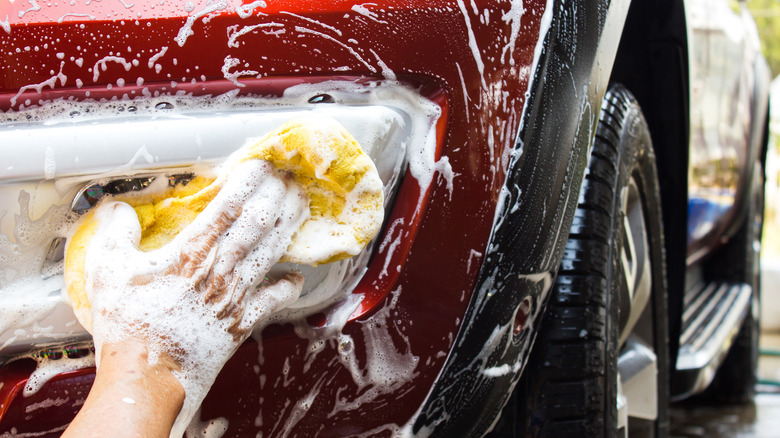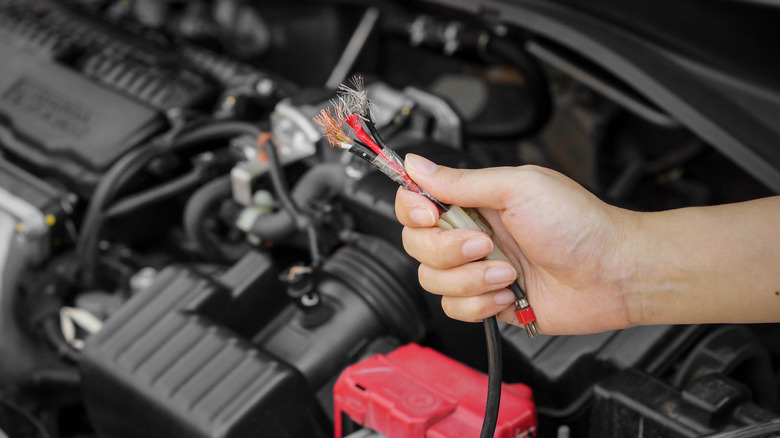5 Precautions To Take When Parking Your Vehicle Long-Term
When you bought your car, storing it for an extended period was probably one of the last things on your mind. However, things come up, and sometimes it's necessary to put it in long-term storage. When this happens, simply parking your car and forgetting about it isn't enough. You need to prepare your vehicle for the weeks or months it'll be sitting idle to keep it safe, prevent damage, and ensure it's ready to hit the road the next time you are.
You may think not much can go wrong when your car is parked long term. After all, you won't be driving it, so there will be less wear and tear on your vehicle, and the probability of getting into an accident drops to zero. Unfortunately, that's not always the case. While you won't have to worry about another driver hitting you or adding more miles to your vehicle while it's in storage, a lot can go wrong when you park your car long-term, including the battery dying and tires developing flat spots from constant pressure on the same place. The good news is there are steps you can take to keep your car in good condition while it takes a break from the road.
Tire maintenance
According to the U.S. Environmental Protection Agency, the average new car weighs 4,094 pounds. That's a lot of weight on your car's tires. While this usually isn't a problem when you're driving your vehicle regularly, if you store it for an extended amount of time, the constant pressure from the weight of your car on the same spot can cause the tire's rubber to deform, causing them to develop permanent flat spots, especially if they're underinflated. This process happens faster in colder climates because cold temperatures can make the rubber harder and less flexible, making tires more susceptible to flat spots.
Before storing your car, you'll want to do a few things to prevent flat spots, including checking the tire pressure and inflating the tires to the manufacturer's recommended level. Some car owners overinflate their tires slightly, which is something you can also consider. However, if you do this, be sure you don't exceed the maximum pressure listed on the tire sidewall. Another option is using jack stands to lift your vehicle off the ground and relieve the tires of the constant pressure from your vehicle's weight.
Protecting the engine and fuel system
While it may seem counterintuitive, filling your gas tank is one of the most important things you can do before parking your car for an extended period. When you leave your vehicle in storage with an empty or half-full gas tank, moisture in the air can seep in, causing condensation that can lead to rust and corrosion inside the tank. A full tank minimizes the amount of air — and consequently moisture — that can get trapped inside, reducing the likelihood of problems.
You may worry about the gas in your car going bad if it sits for too long, and that's a valid concern. Adding a fuel stabilizer to the tank before filling it up can help prevent this and other issues. Fuel stabilizers are chemicals that bond with gasoline to prevent oxidation and the formation of varnish and gum, which can clog fuel lines and injectors. If you're storing your car for a very long time, consider removing the spark plugs and spraying a small amount of oil onto the cylinders to protect the cylinder walls, pistons, and rings from rust. Changing the oil and replacing the oil filter is also a good idea before storing your vehicle because used oil has contaminants that might damage the engine. Fresh oil will do a better job of protecting your car's engine while it's in storage. If possible, you should periodically start your car while it's in storage to help circulate the oil, maintain the battery charge, and keep moving parts lubricated.
Battery Care
With most of our devices, the battery drains less quickly if we aren't using them. Unfortunately, that's not true for car batteries. Even when your car is parked, it's using electricity to power things like the radio, clock, and anti-theft devices. However, since you're not driving it, the alternator never gets a chance to recharge your vehicle's battery, leaving you with a dead battery when you're ready to take it out on the road again.
The easiest way to prevent this from happening is by having someone drive your car for about 15 minutes every two weeks to keep the battery charged. If that's not possible, you should disconnect the battery's negative cable to keep your vehicle's electrical systems from draining it. Keep in mind that if you do this, it'll reset all of your electronic configurations to their default, so you'll lose your car stereo presets and Bluetooth pairings. Another option is to use a trickle charger to keep the battery fully charged while you're not driving your car. Trickle chargers are easy to use; all you have to do is attach them to your car battery and plug them into an electrical outlet. It'll adjust the charging rate as needed to keep the battery charged.
Cleaning and covering your vehicle
Cleaning your car probably won't be the first thing that comes to mind before you store it. After all, does it really matter if it's a bit dirty if nobody's going to see it for weeks or months? The answer is a resounding yes. You need to give your vehicle's interior and exterior a thorough cleaning before parking it long term. Doing so will keep mildew and mold growth at bay and remove dirt and debris that could ruin your car's paint job. Don't stop with just washing the exterior of your vehicle; also consider applying a paint-protecting wax. Waxing your car can protect it from corrosion, fading, and discoloration. As for your car's interior, be sure to vacuum it, wipe down any surfaces, and get rid of any trash that could attract pests.
Whether you park your vehicle inside or outside, adding a car cover can provide additional protection while it's in storage. An indoor car cover will help protect your car from scratches and dents, keep the paint job looking good for longer, and prevent dust and pollen from entering the vehicle. If you park your vehicle outside long-term, a car cover becomes even more important, protecting it from harsh weather conditions, UV rays, bird droppings, tree sap, and accidental scrapes. Outdoor covers are specially designed to be more durable and water-resistant, ensuring your vehicle stays dry and protected from the elements.
Keep Pests Away
In most cases, storing your car in a garage will keep it dry and warm and protect it from the elements. Unfortunately, those favorable conditions also make your car attractive to rodents. Rodents can do serious damage to your vehicle. They'll gnaw on your vehicle's seats, cables, and hoses, potentially destroying them. If you leave behind food wrappers, crumbs, or anything else they find tasty, they may decide to build nests in your engine compartment and turn your car into their home. They'll even turn your vehicle into their own personal restroom, leaving their droppings everywhere they go.
You can use a few proven tricks to mouse-proof your car while it's parked. Before parking your car long-term, cover the exhaust pipe, air intake, and any other openings with wire mesh or steel wool to block entry points. Placing mothballs or rodent-repellent pouches around your vehicle can also deter rodents from setting up shop in your car — they won't like the smell. Parking your vehicle in a climate-controlled storage facility will reduce the chances of rodent infestations, but it's still a good idea to take additional measures just in case.

